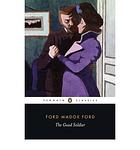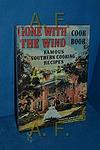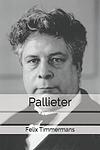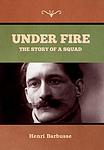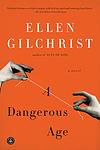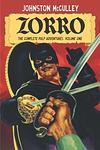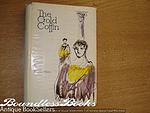The Greatest "Historical fiction, Fiction" Books From 1910 to 1919
Click to learn how this list is calculated.
This list represents a comprehensive and trusted collection of the greatest books. Developed through a specialized algorithm, it brings together 288 'best of' book lists to form a definitive guide to the world's most acclaimed books. For those interested in how these books are chosen, additional details can be found on the rankings page.
Genres
Historical fiction is a genre of literature that combines fictional stories with real historical events, settings, and characters. These books often take place in a specific time period and are based on research and factual information, but also include imaginative elements to create a compelling narrative. Historical fiction allows readers to experience the past in a unique and engaging way, while also providing insight into the social, cultural, and political issues of the time.
Countries
Date Range
Reading Statistics
Click the button below to see how many of these books you've read!
Download
If you're interested in downloading this list as a CSV file for use in a spreadsheet application, you can easily do so by clicking the button below. Please note that to ensure a manageable file size and faster download, the CSV will include details for only the first 500 books.
Download-
1. The Good Soldier by Ford Madox Ford
"The Good Soldier" is a tragic tale of two seemingly perfect couples: an American couple and an English couple, who meet at a German spa and share a nine-year friendship. However, underneath the surface, their relationships are far from ideal, filled with infidelity, lies, and deceit. The story is narrated by the American husband, who is the last to realize the intricate web of affairs and betrayals amongst the group. The novel explores themes of love, passion, and the destruction that can result from suppressed emotions and societal pressures.
-
2. Growth of the Soil by Knut Hamsun
"Growth of the Soil" is a novel that follows the life of a man who leaves his nomadic lifestyle to become a pioneer farmer in the Norwegian wilderness. The narrative traces his journey from solitude to building a family and a thriving farm, showcasing his deep connection with the land and the cyclical nature of life. The book also explores the tension between traditional rural life and modernity, as external forces such as industrialization and societal change begin to impact the protagonist's simple existence.
-
3. The Magnificent Ambersons by Booth Tarkington
"The Magnificent Ambersons" is a Pulitzer Prize-winning novel set in the early 20th century that explores the dramatic changes brought about by the industrial revolution in America. It follows the decline of the once-prosperous Amberson family as their fortune and influence wane with the rise of new money and modern technology. The story is centered around the prideful and spoiled George Amberson Minafer, whose arrogance and inability to adapt to the changing world lead to his downfall.
-
4. Petersburg by Andrei Bely
"Petersburg" is a symbolist novel set in the heart of Russia during the 1905 Revolution. It follows the story of a young man who is given the task of assassinating his own father, a high-ranking government official, by a radical political group. The narrative is a complex mix of politics, family drama, and philosophical introspection, all set against the backdrop of a city in turmoil. The novel is renowned for its vivid and poetic descriptions of the city itself, making Petersburg as much a character in the story as the people who inhabit it.
-
5. Home and the World by Rabindranath Tagore
This novel is a political and philosophical exploration set in early 20th century India during the country's struggle for independence. It revolves around three main characters: a nobleman, his wife, and his friend, a fervent nationalist. The story unfolds as the wife, initially confined to the inner quarters of their home, begins to question her societal boundaries and the idea of nationalism after meeting her husband's friend. The narrative delves into the complexities of love, freedom, and the concept of home and world, set against the backdrop of the Swadeshi movement, a part of the Indian independence movement against British rule.
-
6. The Underdogs by Mariano Azuela
"The Underdogs" is a novel set during the Mexican Revolution, depicting the conflict from the perspective of the peasants who fought in it. The story follows the journey of a poor, illiterate Indian named Demetrio Macias, who becomes a reluctant leader in the rebellion against the federal government. The narrative explores the brutality and chaos of war, the corruption of power, and the often futile nature of rebellion, painting a grim picture of the human cost of revolution.
-
7. The Return of the Soldier by Rebecca West
"The Return of the Soldier" is a poignant story set during World War I, revolving around a British soldier suffering from shell shock-induced amnesia. Upon his return home, he does not remember his wife or his comfortable life of privilege, but instead, recalls his first love and the modest past they shared. The narrative explores the complex dynamics and emotional turmoil experienced by the soldier, his wife, his cousin, and his former sweetheart as they grapple with the consequences of war, memory, and class distinctions.
-
8. The Fortunes Of Richard Mahony by Henry Handel Richardson
"The Fortunes of Richard Mahony" is a trilogy that chronicles the life of an Irish-born man who emigrates to Australia during the gold rush of the 1850s. The narrative follows his journey, detailing his struggles with mental health, the challenges of marriage, and the difficulties of raising a family in a foreign land. The story provides a deep insight into the complexities of human nature, the societal norms of the time, and the challenges faced by immigrants.
-
9. The Getting Of Wisdom by Henry Handel Richardson
The novel is a coming-of-age story set in late 19th-century Australia, following the experiences of Laura Rambotham, a spirited and intelligent country girl sent to a prestigious Melbourne boarding school. Struggling with the rigid social hierarchies and the expectations placed upon her, Laura faces numerous challenges and humiliations, but she remains determined to find her place in the world. Through her journey, the book explores themes of education, social class, friendship, and the quest for personal identity, ultimately illustrating the complexities and trials of growing up and the bittersweet acquisition of wisdom.
-
10. The Fool In Christ: Emmanuel Quint by Gerhart Hauptmann
This novel delves into the life of Emmanuel Quint, a man who, amidst the turmoil of early 20th-century Germany, believes himself to be a modern-day messiah. His profound spiritual convictions and miraculous healings draw a fervent following, yet also attract scorn and skepticism from society and religious authorities. As he embarks on a tumultuous journey of faith, Quint's radical teachings and the controversies surrounding his actions challenge the established norms and beliefs of the time, leading to profound reflections on spirituality, morality, and the nature of divinity. The narrative explores the fine line between madness and sanctity, ultimately questioning the essence of truth and redemption in a world resistant to change.
-
11. The Titan by Theodore Dreiser
"The Titan" is a novel that continues the story of a ruthless and ambitious businessman as he expands his empire in the early 20th-century United States. Having conquered the streetcar industry, the protagonist now sets his sights on utilities and finance, using his wealth and power to manipulate stock markets, bribe officials, and crush any opposition. His personal life is equally tumultuous, filled with affairs and scandals that threaten his marriage and social standing. This narrative serves as a critique of the American Dream and the capitalist fervor of the time, exploring themes of greed, corruption, and the quest for power at the expense of ethics and human relationships.
-
12. South Wind by Norman Douglas
Set on the fictional Mediterranean island of Nepenthe, the narrative unfolds as a diverse cast of eccentric expatriates and natives engage in philosophical discussions and indulge in the hedonistic pursuits characteristic of the island's culture. The central theme revolves around the clash between the island's permissive morals and the more conservative values of the outside world, with the plot meandering through various anecdotes and character studies rather than following a traditional linear progression. The novel is a satirical exploration of human nature, freedom, and the search for happiness, all set against the backdrop of a sun-drenched, idyllic landscape that seems to encourage both personal reflection and the shedding of societal constraints.
-
13. Pallieter by Felix Timmermans
"Pallieter" is a classic Flemish novel that depicts the life of a jovial and life-loving man, Pallieter, who lives in harmony with nature in a small Belgian town. The story showcases his love for the simple pleasures of life, his interactions with the townsfolk, and his deep connection with the natural world. However, when industrialization threatens his idyllic lifestyle, Pallieter decides to leave his beloved town. The novel is a celebration of life and nature, while also exploring the impact of industrialization on rural life.
-
14. Under Fire by Henri Barbusse
"Under Fire" is a gripping first-person narrative of life in the trenches during World War I. The protagonist, a French soldier, provides an intimate and harrowing account of the physical and psychological toll of warfare. The book presents a grim picture of the war, highlighting the camaraderie among soldiers, the horror of the battlefield, the senseless loss of life, and the disillusionment of those who must endure it. The narrative is known for its stark realism and profound anti-war sentiments.
-
15. The Emperor of Portugallia by Selma Lagerlöf
"The Emperor of Portugallia" is a poignant tale of a poor Swedish farmer who loses his sanity after his beloved daughter leaves home to work in the city. He retreats into a fantasy world where he is the Emperor of Portugallia, and his daughter is the Empress. Despite the ridicule and scorn he faces from his community, he clings to his delusions, finding comfort and solace in them. The story is a profound exploration of love, loss, and the power of the human mind to create alternate realities as a coping mechanism.
-
16. Meek Heritage by Frans Eemil Sillanpää
This novel delves into the profound impacts of World War I on the Finnish countryside, focusing on the life of a soldier who returns home to find his world irrevocably changed. Through his eyes, readers experience the struggle of rural Finns as they navigate the harsh realities of war and its aftermath, grappling with loss, change, and the challenge of rebuilding their lives. The narrative beautifully captures the resilience of the human spirit and the enduring strength of community ties in the face of adversity, offering a poignant exploration of the themes of survival, identity, and the search for meaning in a transformed world.
-
17. The Moccasin Maker by E. Pauline Johnson
"The Moccasin Maker" is a collection of short stories and essays that delve into the lives and experiences of Indigenous people at the turn of the 20th century. Through a blend of fiction and autobiographical elements, the work explores themes of identity, cultural conflict, and the impact of colonization on Indigenous communities in Canada. The author, herself of mixed heritage, provides a nuanced portrayal of the struggles and resilience of her characters, often challenging the prevailing stereotypes and offering a unique perspective on the complexities of living between two worlds. The stories are notable for their rich characterizations and the author's lyrical prose, which captures the beauty and sorrow of the cultural landscape she describes.
-
18. The Dangerous Age by Karin Michaelis
"The Dangerous Age" is a reflective epistolary novel that delves into the emotional and psychological journey of a middle-aged woman who, upon reaching her forties, confronts the societal pressures and personal disillusionments that come with aging. Through a series of candid letters, she shares her experiences of estrangement from her husband, the challenges of maintaining her identity and desires, and her struggle to navigate the expectations placed upon women of her age. The protagonist's introspective correspondence reveals the inner turmoil and liberation that accompany her quest for self-discovery and authenticity in a world that often marginalizes women as they grow older.
-
19. Virginia by Ellen Glasgow
The novel is a portrayal of the life of a Southern woman named Virginia, who embodies the traditional values and social expectations of the American South at the turn of the 20th century. Throughout the story, Virginia's personal journey is marked by her marriage, motherhood, and the gradual disillusionment with her prescribed role in society. As she confronts the changing world around her, including the challenges of modernity and the evolving status of women, she experiences both internal conflict and growth. The narrative delves into themes of identity, societal norms, and the struggle for self-realization within the confines of a conservative and patriarchal culture.
-
20. Hadji Murat by Leo Tolstoy
The novella centers on the real-life figure Hadji Murat, a 19th-century Chechen rebel commander who, after a falling out with his own leader, Imam Shamil, defects to the Russians for a chance to avenge his family. Caught between the complex military and cultural conflicts of the Russian Empire and the fiercely independent Chechen tribes, Murat's struggle for honor, survival, and revenge reflects the brutal realities of the Caucasian War. As he navigates the treacherous political landscape, his story becomes a poignant exploration of loyalty, betrayal, and the dichotomies of human nature.
-
21. The Loyal Subject by Heinrich Mann
"The Loyal Subject" is a satirical novel set in Germany during the reign of Kaiser Wilhelm II. It follows the life of a petty bureaucrat who is obsessively devoted to the Kaiser and the state, despite the fact that his loyalty is constantly abused. His blind obedience and the absurdity of the system are used to critique the militarism and authoritarianism of the period. The story is a powerful indictment of the dangers of unchecked nationalism and the dehumanization that can result from excessive obedience to authority.
-
22. Η Τιμη Και Το Χρημα by Konstantinos Theotokis
This novel delves into the moral and social decay of Corfiot society through the story of a family torn apart by greed and the pursuit of wealth. The narrative focuses on the protagonist's struggle to uphold his integrity and moral values in the face of societal pressure to prioritize financial gain over personal honor. Set against the backdrop of late 19th-century Corfu, the book offers a critical examination of the impact of materialism on human relationships and the corrosive effect of money on traditional values and ethics. Through its vivid portrayal of the protagonist's internal and external conflicts, the novel presents a timeless exploration of the human condition and the choices individuals must make between material wealth and moral virtue.
-
23. The Three Sisters by May Sinclair
This novel explores the lives and emotional complexities of three sisters living in a provincial English town at the turn of the 20th century. Through their interactions and personal growth, the narrative delves into themes of love, independence, and societal expectations. The sisters, each with distinct personalities and desires, navigate the challenges of finding their places in a world where their choices are limited by their gender and social standing. The story is a poignant examination of the struggles for personal fulfillment and the search for identity within the confines of a restrictive society.
-
24. The Mark Of Zorro by Johnston McCulley
This classic adventure novel is set in early 19th century California, under Spanish rule. It tells the story of Don Diego Vega, a seemingly effete and foppish nobleman, who leads a double life as the masked outlaw Zorro. Zorro champions the oppressed and fights the corrupt government and its officials, using his wit, swordsmanship, and acrobatic skills. The story weaves together themes of justice, honor, and romance, as Zorro navigates his secret identity, battles villains, and wins the heart of the beautiful Lolita Pulido. Through daring escapades and a quest for justice, Zorro leaves his mark as a symbol of hope and resistance against tyranny.
-
25. The Gold Coffin by Ferenc Móra
"The Gold Coffin" is a historical novel that transports readers to ancient Egypt, where a young scribe named Tuthmes navigates the complexities of life and power in the Pharaoh's court. After discovering a golden coffin that is said to hold great secrets and power, Tuthmes becomes embroiled in a dangerous web of political intrigue and betrayal. As he seeks to uncover the truth behind the coffin and its mystical properties, he must also contend with his own personal ambitions and the moral dilemmas that arise from his quest for knowledge and influence. Set against the richly detailed backdrop of Egyptian culture and mythology, the novel explores themes of ambition, loyalty, and the enduring human fascination with immortality.
Reading Statistics
Click the button below to see how many of these books you've read!
Download
If you're interested in downloading this list as a CSV file for use in a spreadsheet application, you can easily do so by clicking the button below. Please note that to ensure a manageable file size and faster download, the CSV will include details for only the first 500 books.
Download